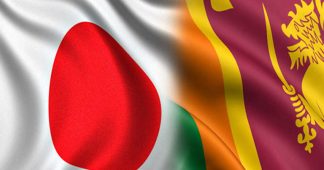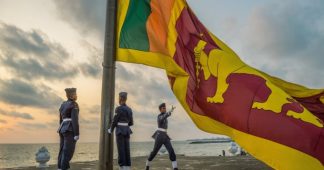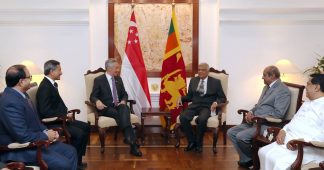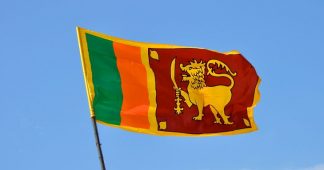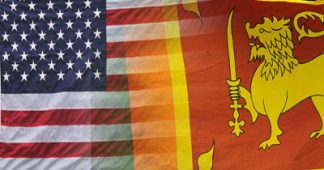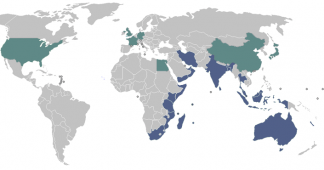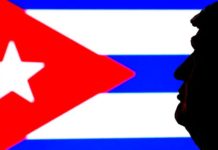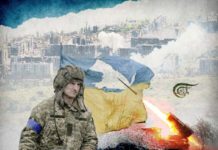By Lasanda Kurukulasuriya
Jan. 23, 2020
It was an unusually busy week for the foreign ministry in Colombo earlier this month when there werevisits by Russian, Chinese and US diplomats, all of whom met President Gotabaya Rajapaksa on the same day. China’s Foreign Minister Wang Yi and US Principal Deputy Assistant Secretary Alice Wells were in Colombo at the same time that Russia’sForeign Minister Sergey Lavrov(now technically an ‘Acting’ minister) made his first official callin over 10 years, 13th-14th Jan. Lavrov went on to New Delhi where he addressed an international conference on geopolitics.
The convergence of these diplomats’ visits may not be entirely coincidental, against the backdrop of shifting power relations in an emerging multi-polar world. China’s rise may be at the root of concerns that bring India closer to the US, but these worries are not shared by Russia, which has a cooperative relationship with China. Russia also enjoys longstanding strategic ties with India.
So Lavrov, a much anticipated speaker, was well placed at the Raisina Dialogue in Delhi, to critique the US’s ‘Free and Open Indo Pacific’ concept as one that is designed to contain China. His comments resonate in Sri Lanka where US – China rivalry for influence has become a cause for public concern that no political leader can ignore in formulating foreign policy.
Analysts worry that tensions resulting from this competition could lead to the strategically located Indian Ocean island becoming the site of a proxy war between the world’s superpower and its main challenger. China’s substantial infrastructure investments, though commercial in nature, are seen to have a strategic dimension that is viewed with suspicion by the West. And the US, which beefed up an existing Acquisition and Cross Service Agreement with the previous Sri Lankan government, has been pressing to conclude a Status of Forces Agreement with the new administration. The desire to conclude a Millennium Challenge Corporation compact was reportedly raised by US diplomat Wells, in her discussions with officials.
In this highly wrought context, the world view outlined by Lavrov where small states are not pressured to ‘take sides,’ comes as a welcome counterbalance to one driven by big power pressure.
Lavrov’s remarks in Delhi echoed views he had expressed earlier in Colombo. “Unfortunately, we have recently been witnessing persistent attempts of extra-regional powers to reshape the established order to serve their narrow interests,” he said, in an email interview with the state-run Daily News. “The concept of a “free and open Indo-Pacific region” promoted by the United States has not a unifying but a destructive potential. Its true objective is to divide the regional states into “interest groups,” weakening the newly-established regional system of inter-state relations to assert dominance.”
The Russian minister called for establishment of a ‘common area of cooperation’ in the region. He was invoking UN Charter principles when he said the regional architecture should be built on principles of indivisible security, rule of international law, non interference in internal affairs, peaceful settlement of disputes and non use of force or the threat of force.
Minister Lavrov’s discussions with President Rajapaksa and Minister of Foreign Relations Dinesh Gunawardena have been warm, and their discussions fruitful. Sri Lanka’s priority in these discussions has been economic development, in line with the newly elected president’s election manifesto.“The economic independence will ensure political independence,” Rajapaksa told China’s visiting Foreign Minister Wang Yi.
“We discussed the increasing importance of the Indian Ocean region to global trade and commerce, and stressed the importance of maintaining stability and security for the future development and prosperity of the region”said Minister Gunewardena at a joint press briefing Jan. 14. He described defence cooperation between the two countries as ‘active and robust.’
Lavrov told reporters that Sri Lanka and Russia were ‘successfully coordinating’ their positions in international bodies such as the UNHRC, UNESCO and OPCW. He mentioned BRICS and the SCO, over which Russia holds the presidency this year, and suggested greater participation in SCO by Sri Lanka – currently a dialogue partner. “We will strengthen our cooperation through the Non Aligned Movement, where Russia is an observer and Sri Lanka is one of the founding fathers” he said.
The Russian minister’s observations and remarks of his hosts during this visit reflect an alignment of Sri Lanka’s interests with those of the global South. This differs from the previous pro-US government’s tendency to capitulate to the Western interests in the hope of attracting Western investment and economic support. Considering that this policy of appeasement achieved little more than photo-opportunities in the world’s capitals with smiles and handshakes with Western leaders, the new government’s handling of recent high level diplomatic interactions could signal awelcomeparadigm shift in Sri Lanka’s approach to its relations with the rest of the world.
